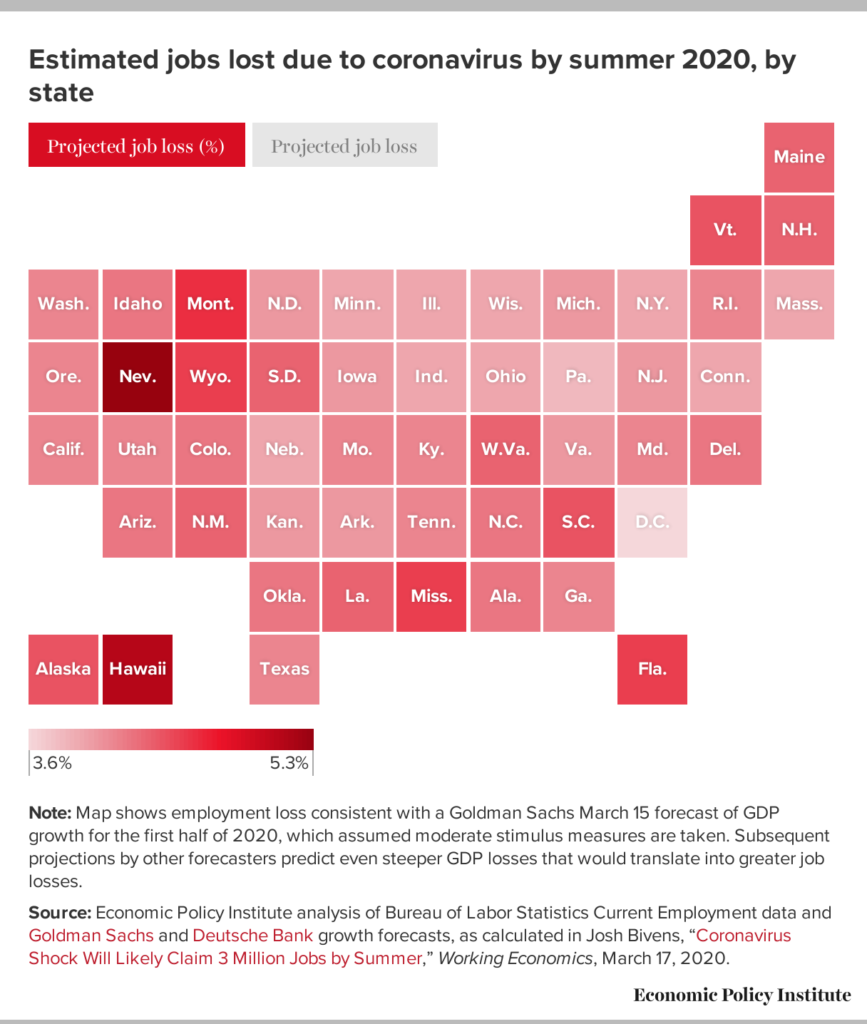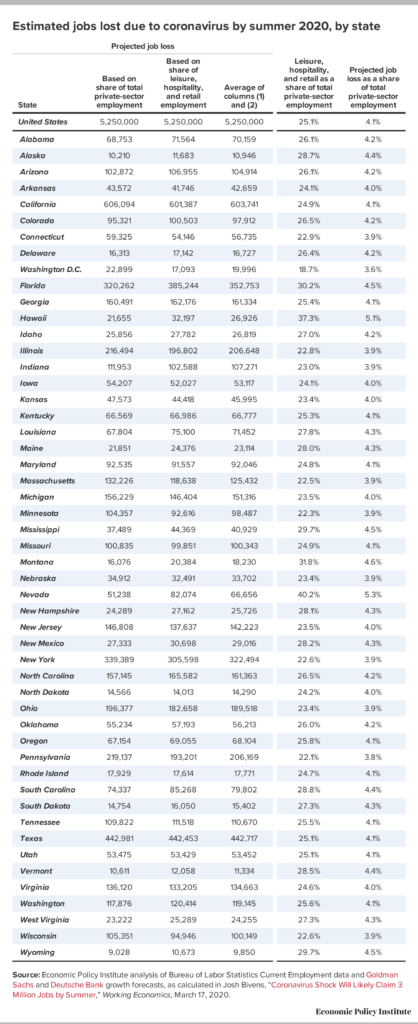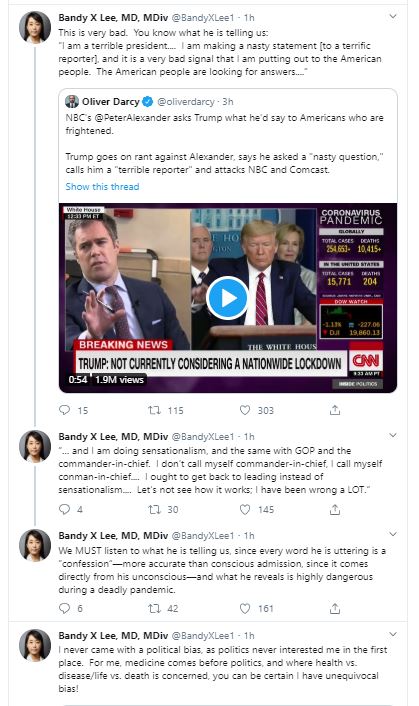
Jobless Claims Could Top 2 Million Next Week
As economic activity around the world contracts, the number of people with no work is rapidly rising toward levels unseen since the Great Depression.
The number of initial claims for jobless benefits grew by a third last week, from 211,000 to 282,000, the Bureau of Labor Statistics reported Thursday.
That’s nothing compared with the 2.25 million initial claims for benefits that David Choi, a Goldman Sachs economist, expects next week. That would be more than three times the record high of 661,000 in March 2009 during the Great Recession.
A majority of workers who are let go will not qualify for benefits without changes to state laws. And the distribution of job losses will vary widely among the states. The first and hardest hit will be states whose economies rely heavily on tourism: Florida, Hawaii and Nevada.

Last month, before COVID-19 forced massive layoffs, almost 6 million Americans were unemployed, yet fewer than two million received unemployment benefits.
The biggest reason is failure to seek benefits, but even among those who apply the system is designed to minimize who qualifies.

“In 2018, 74 percent of the unemployed people who had worked in the previous 12 months had not applied for unemployment insurance benefits since their last job,” the Bureau of Labor Statistics reported in October.
“Of the unemployed who had not applied, 3 out of 5 did not apply because they did not believe they were eligible to receive benefits. Eligibility issues include: Their work was not covered by unemployment insurance, they quit their job, they were terminated for misconduct, they had insufficient past work, or they had previously exhausted their benefits,” the bureau said.
Three out of four people without a job collected zero jobless benefits in 2017, the National Employment Law Project calculated. In Florida, now Donald Trump’s home state, it’s much worse: Seven out of eight applicants were denied jobless benefits.
You can get a solid idea of the many ways jobless benefits can be denied from this website on Ohio rules or New York state rules.
The money’s not much, either. The maximum benefit in New York is $504 a week. In Alabama jobless benefits range from $45 a week up to $265.
–David Cay Johnston
Blood Shortages
Blood banks around the country affected by lockdowns rather than COVID-19 directly are asking for donors – something deemed an essential service permitting people to move around even in sheltered areas. The Red Cross normally supplies about 40 percent of the nation’s blood. As of this week, more than 4,500 blood drives had been canceled, resulting in nearly 150,000 fewer donations. Typically, the Red Cross needs to receive 13,000 blood donations daily. Red blood cells are viable for 42 days, platelets for only five. Check the American Association of Blood Banks locator, visit the Red Cross website, or call 1-800-RED-CROSS for local donation sites. In New York City, addresses are available at www.nybloodcenter.org.
–Terry H. Schwadron

Featured image: A worker in a mask cleans as people avoid the Las Vegas Strip after casinos have been ordered to shut down due to the coronavirus. (John Locher/AP)
PLEASE CONSIDER DONATING TO SUPPORT OUR NONPROFIT NEWS REPORTING EFFORTS





